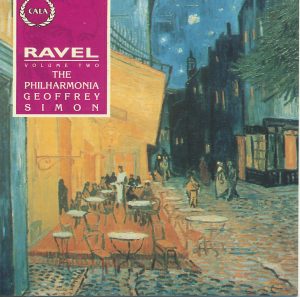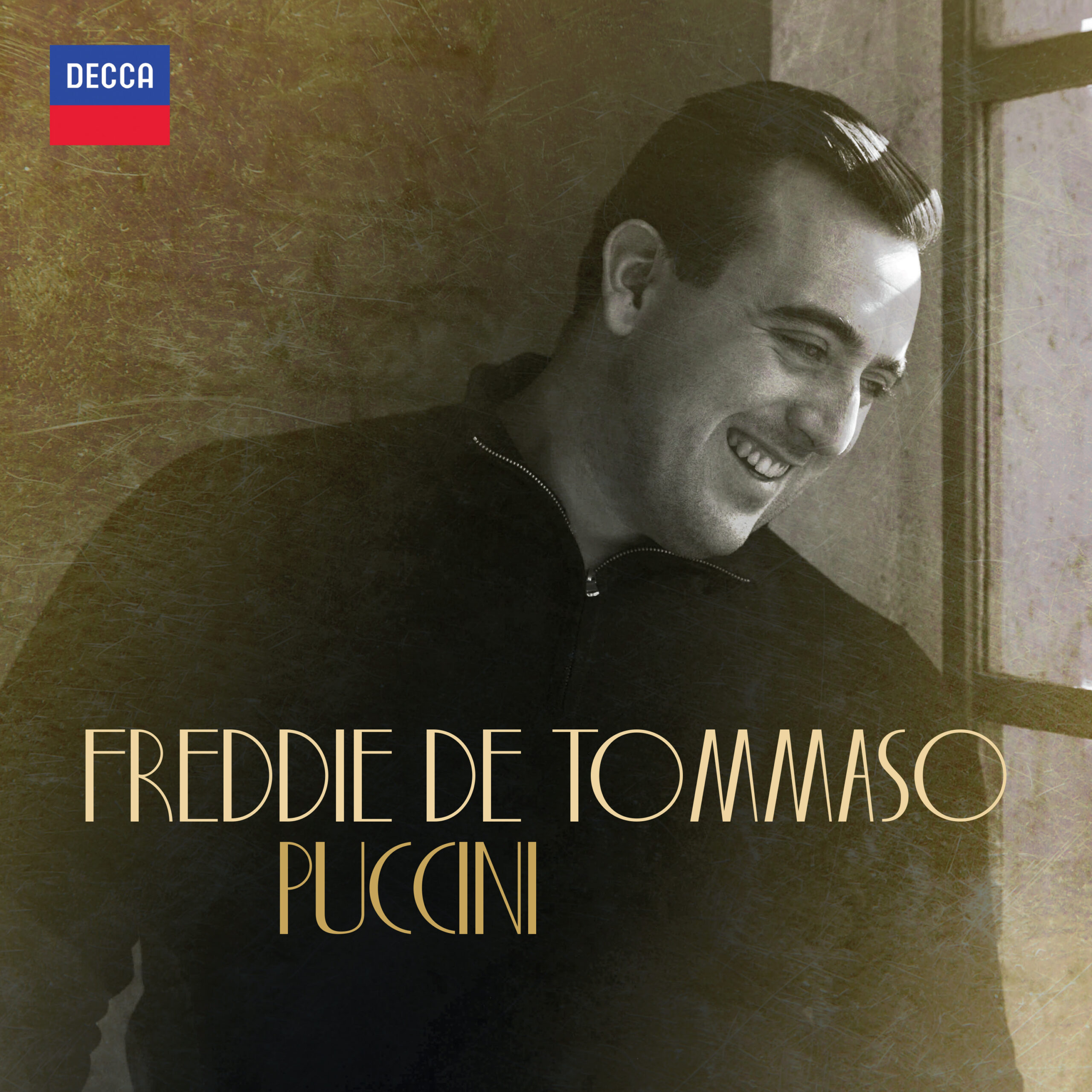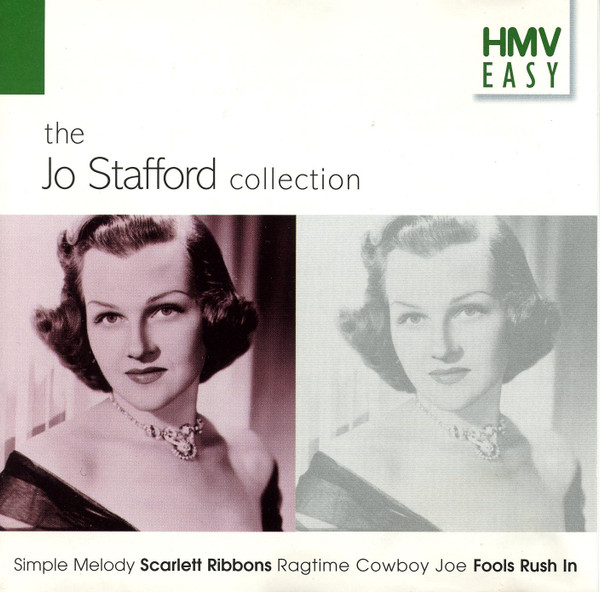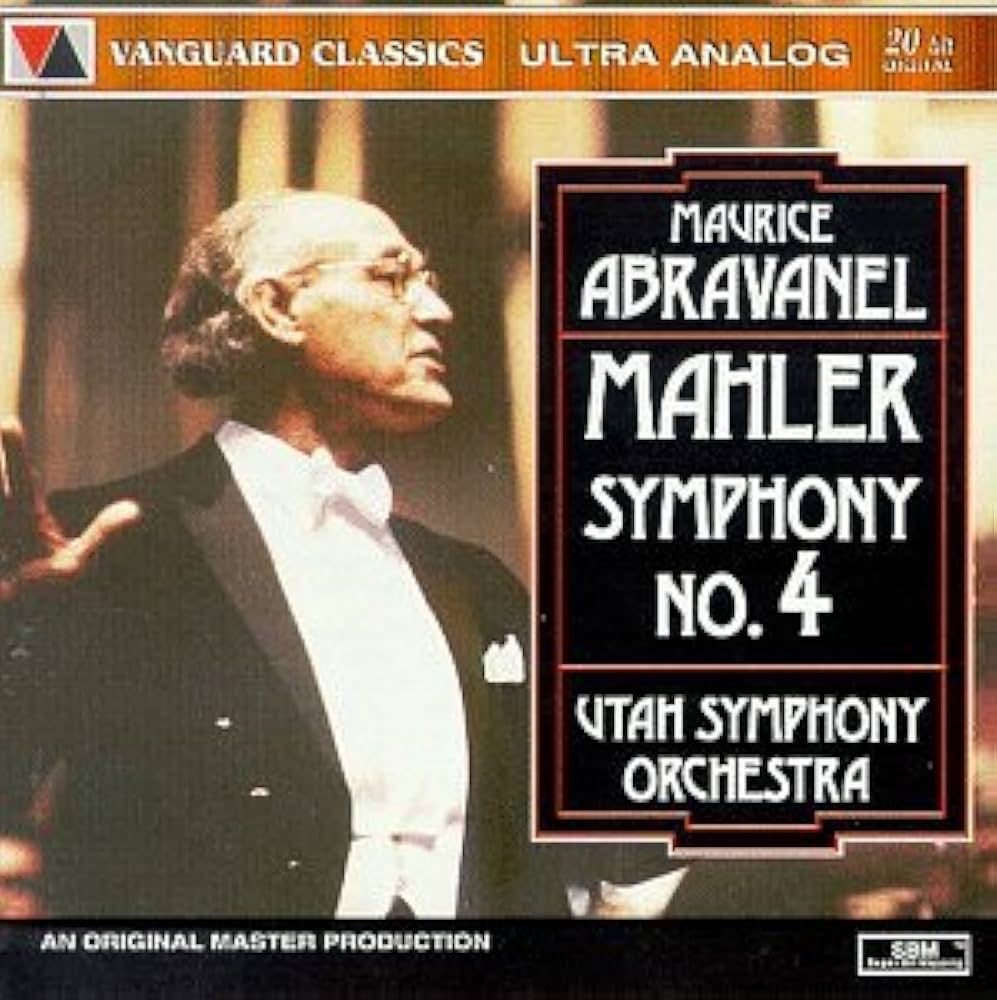RAVEL: Orchestral Works, volume 2. The Philharmonia/Geoffrey Simon. Cala CACD 1005. TT: 75.42
Rapsodie espagnole. Le gibet (orch. Goossens). Five O'Clock Foxtrot (orch. Palmer). Piano Concerto in G (Gwendolyn Mok, piano). Pavane pour une infante défunte. Pièce en forme de habañera (orch. Hoérée; Han de Vries, oboe). Daphnis et Chloé: Suite 2.
I picked up this disc and happened to glance at the publication date: 1991. It's sobering to consider that Cala Records—a "new label" to me—is now three decades old!
It actually began somewhat earlier than that. I remember the company's launch ads in the record magazines. (For that matter, I remember the record magazines.) Cala's original issues were organized as full-length "concert programs," with each disc following the standard framework of an overture or tone-poem, a concerto, and a symphony. The discs came in fancy-looking leatherette bindings, each of which contained an elaborate program booklet; Cala also touted their superb sound, though, in that first decade or so of CD, everyone claimed that (and some of them were wrong!).
The record-club marketing apparently wasn't a great success. Neophytes attracted by the deluxe packaging were likely turned off by the premium price (and CDs were still expensive to begin with), while, for veteran collectors, the programming entailed needless multiple duplications across composers. So Cala regrouped, ditching the subscription format in favor of regular commercial issues devoted to a single composer, sprinkling rarities among the chestnuts. (In the days before streaming and playlists, this was actually a plus.) Where possible, selections from the original concert discs were recycled into the appropriate programs, to get a bit more mileage out of them.
As you might expect, it's the novelties that carry the day here. Le gibet, from the larger piano piece Gaspard de la nuit, is, in Eugene Goossens's orchestration, full-textured yet transparent, emphasizing darker orchestral sonorities; it emerges as ominous and macabre. The Five O'Clock Foxtrot is more substantial than its title and length would suggest. It's also dark in mood, with occasional chipper, Gershwinesque syncopations setting the prevailing anxiety in relief. The Pièce en forme de habañera, conversely, is light-hued and affirmative, even if it doesn't suggest a dance for Carmen.
Turning to the familiar repertoire, Gwendolyn Mok shines in a reflective, spacious reading of the Piano Concerto's central Adagio assai, and she sparkles nicely in the rest of the score. Simon, supports her well: late in that Adagio, the orchestra briefly lags behind the soloist, but the woodwinds place their nose-thumbing interjections in the quick finale with assurance. Late in the concerto's first movement, we briefly hear a foreshadowing of the Pavane; that piece itself, once past a few smudged attacks, sustains a lovely, airy delicacy.
Unfortunately, the other standards don't match this level. In the Rapsodie espagnole, the climax in the first movement blossoms handsomely, but the faster movements suffer patches of blurry ensemble. (If you still need a recommendation, it's worth digging up the 1956 early-stereo Ansermet.) In the Daphnis suite, "Daybreak" is easy and spacious. The flute's labored rubato rather hobbles the "Pantomime," but the "Danse générale" chugs along conventionally well.
The sound is good -- no excessive ambience gumming up the works—but not exceptional. The program notes are thorough, but is Arthur Hoérée's orchestration of the Pièce en forme de habañera really the first to feature the oboe as soloist? I dimly remember a Reader's Digest recording of the same piece that did the same thing—perhaps it was the same arrangement.
Note that Signum Classics, which has taken over Cala, has rearranged the two original programs across the two CDs. So, if you want the particular (original) program I'm describing, look sharp. (Downloads of both programs will apparently be available in late October: check hyperion-records.co.uk for updates.)
stevedisque.wordpress.com/blog



































